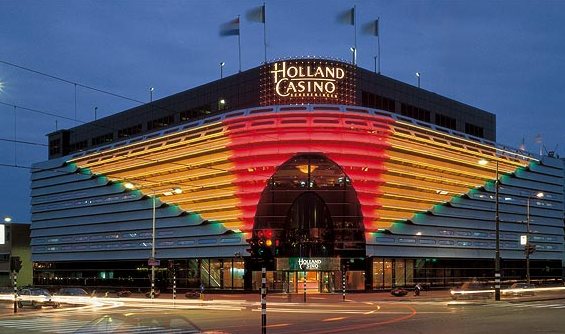‘Government leaves protection of online gamblers largely up to operators’

 The government’s proposed new gambling act is leaving the protection of gamblers largely in the hands of the gambling operators. Not a very good idea, according to gaming expert Sytze Kingma, lecturer at the VU Department of Organisation Sciences.
The government’s proposed new gambling act is leaving the protection of gamblers largely in the hands of the gambling operators. Not a very good idea, according to gaming expert Sytze Kingma, lecturer at the VU Department of Organisation Sciences.
The government wants to legalise internet gambling. It makes sense: hundreds of thousands of people are gambling on (illegal) foreign-based sites. Legalisation would make it easier to protect people from deception, fraud, whitewashing, match fixing and gambling addiction. It would also increase tax revenue.
The problem is that the protection of players is not a simple matter, even where ordinary casinos and gambling machines are concerned. Most gambling operators are based abroad, the technology is untransparent and players hard to trace.
Questionable
It is questionable whether the cabinet is sufficiently aware of these problems. The protection of players as described in the legislation it is proposing, for example, puts a remarkable amount of trust in the internet gambling operators. In exchange for a licence they must undertake action to prevent punters from becoming addicted to gambling. But operators must also compete and make a profit.
There is much we don’t know about internet gambling. How big is the risk of addiction? Is being addicted to a digital game the same as being addicted to a physical game? Are all internet games equally dangerous? No research has been done into this so we don’t know. Internet gambling is an activity that takes place in the home in front of a computer and internet gambling addicts rarely seek help.
Nor are the government’s plans very ambitious. It proposes the legalisation of 80% of the internet gambling market, leaving 20% illegal and unsupervised. In Finland, which has a total ban on foreign sites, only 7% of the gambling market remains illegal.
What would constitute a socially acceptable number of gambling addicts? The cabinet has plumped for 20,000, the same number as in 2011. But there are no guarantees. The main impetus to tackle addiction will have to come from gambling operators and addiction care professionals. Together they will have to formulate a plan to keep addiction in check.
Measures
The policy to prevent gambling addiction also leaves something to be desired. Granted, internet gambling operators have to abide by detailed measures geared towards protecting players, from imposing a minimum age and warning players, to offering players the possibility to exclude themselves from a game.
But these measures are mainly creating an illusion of protection. There is technology in place to detect problem gambling, as operators are at pains to point out – but the same technology is used first and foremost to stimulate playing.
Duty of care
In the present projected set-up, gambling prevention will depend too much on what the gambling operators choose to do about it. Yes, they have a duty to protect players against themselves by giving them ‘an insight into their own gambling behaviour and inform them properly about the risks of the game’, but this is no more than an obligation to put in an effort. It would be much better to have a performance-related obligation in place. Those who are unable to show the effectiveness of their prevention measures will have to withdraw from the Dutch market.
Even a fund to finance care for gambling addicts and research into addiction to which operators would contribute is not as good a plan as it might seem. As long as operators are not stimulated into putting in place extra prevention measures such a contribution would be no more than a buyoff.
This article appeared earlier in Trouw
Thank you for donating to DutchNews.nl.
We could not provide the Dutch News service, and keep it free of charge, without the generous support of our readers. Your donations allow us to report on issues you tell us matter, and provide you with a summary of the most important Dutch news each day.
Make a donation